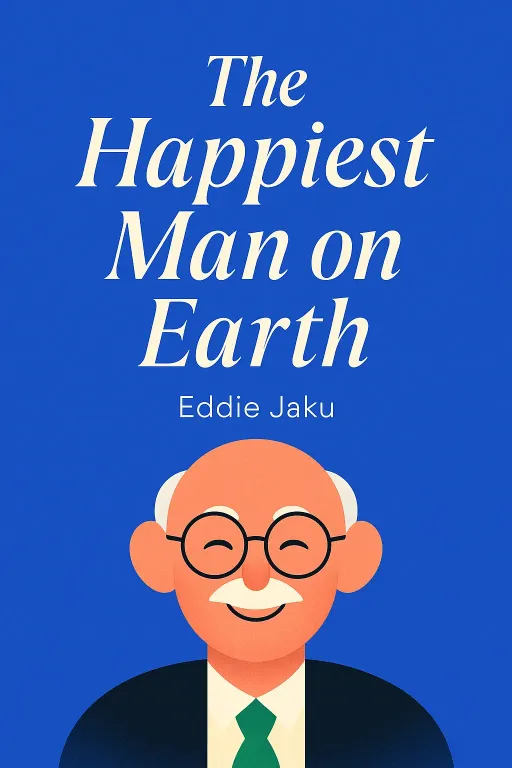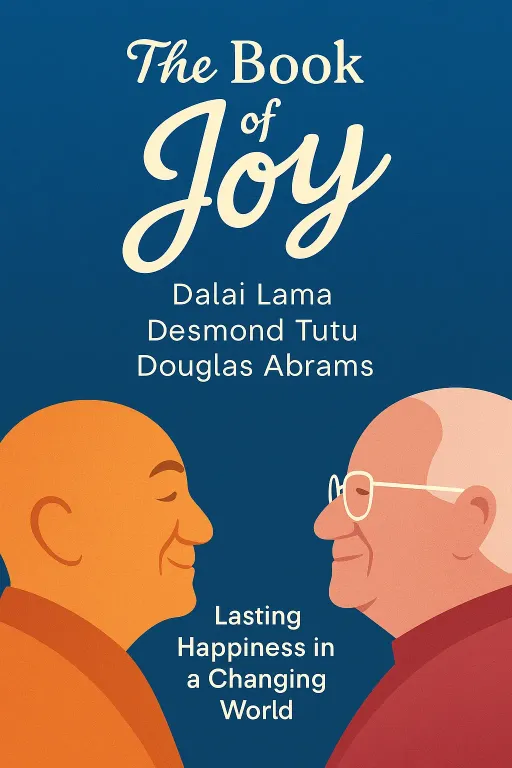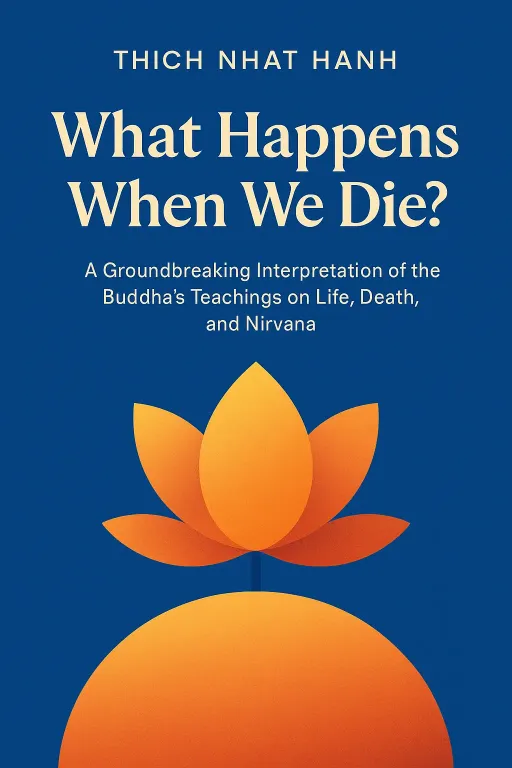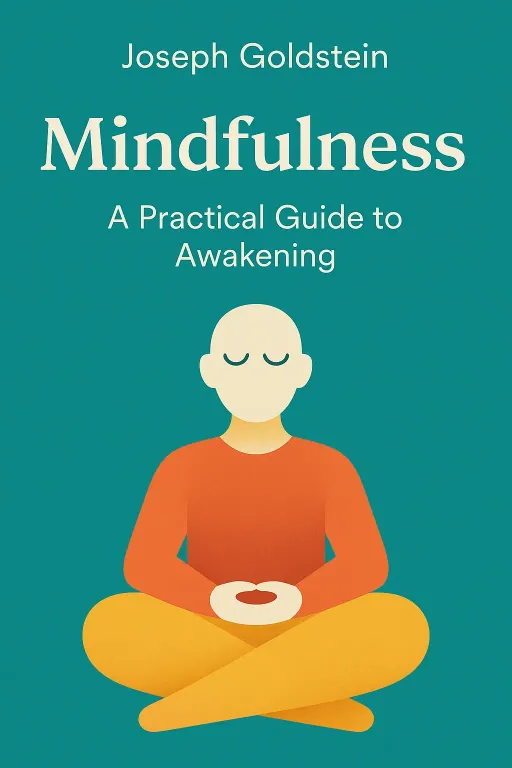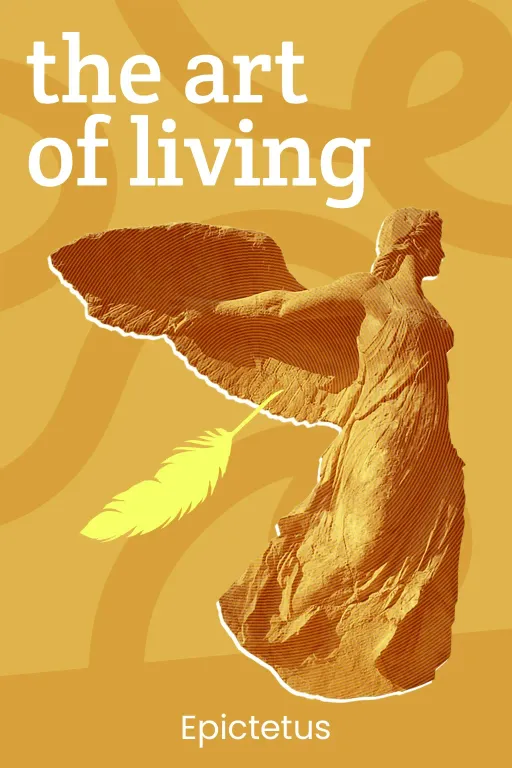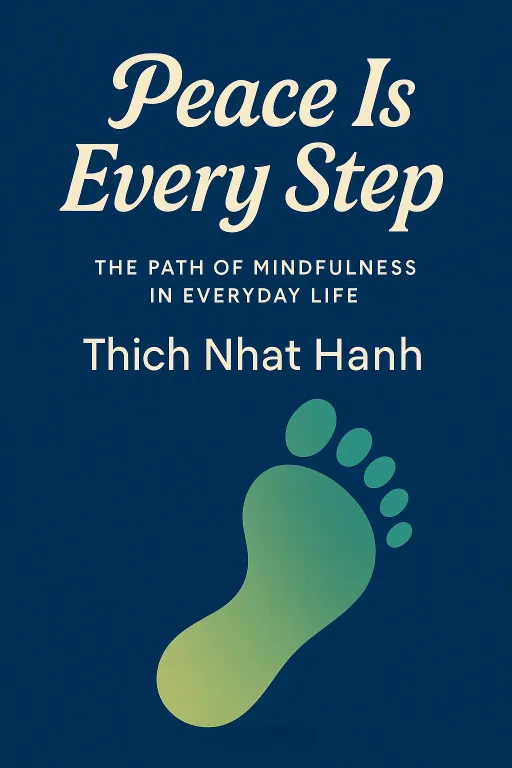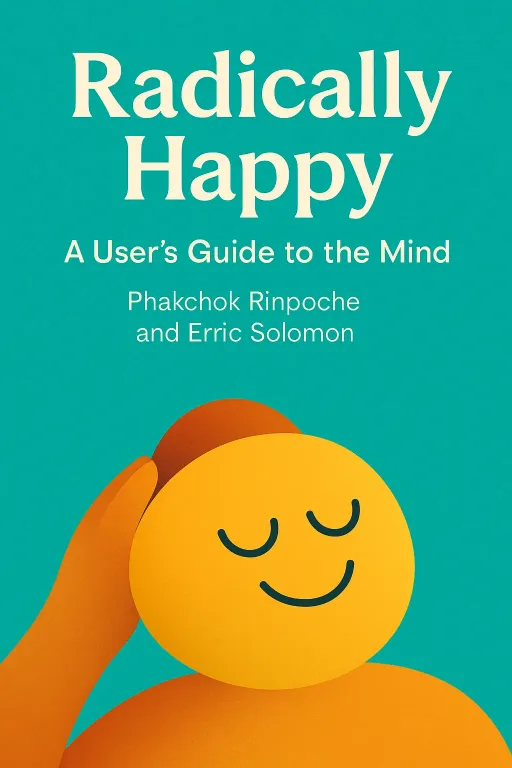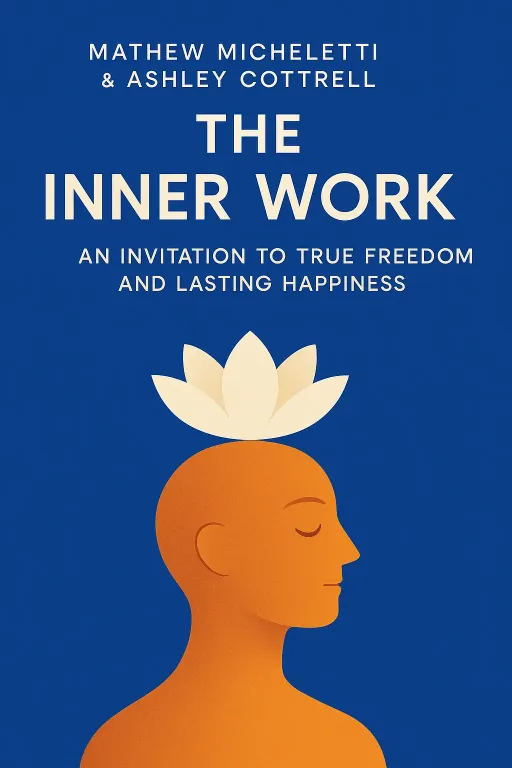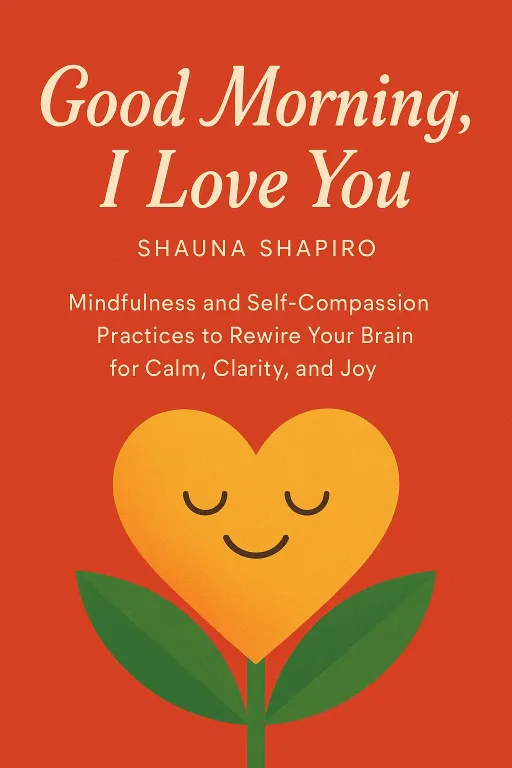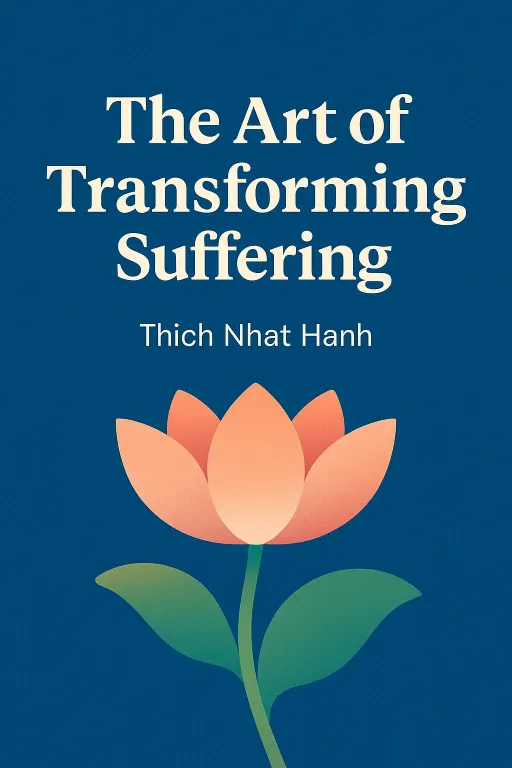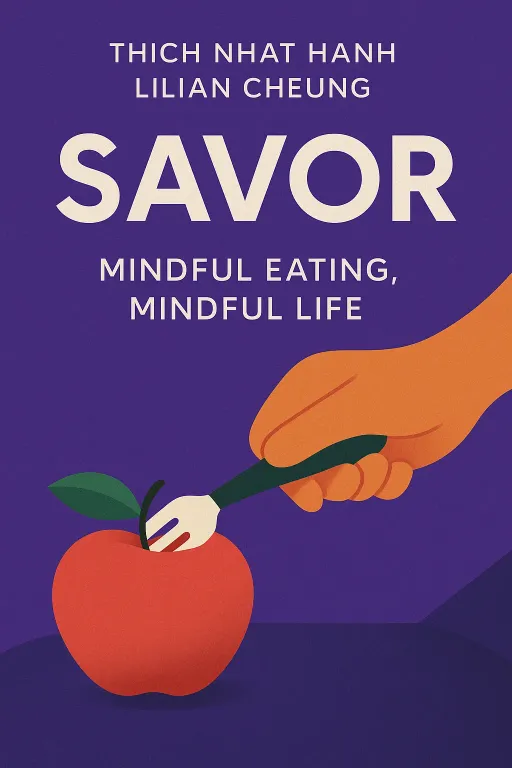
How to Eat an Apple
10 minMindful Eating, Mindful Life
Golden Hook & Introduction
SECTION
Laura: Most of us think the key to a healthier life is a better diet plan or a tougher workout. But what if the real secret has nothing to do with counting calories and everything to do with how you eat a single apple? What if the entire diet industry has it all wrong? Sophia: Tell me about it. Every January, it's a new plan, a new app, a new promise. And by February, I'm right back where I started, feeling like I failed. So what's the missing piece? Laura: That is the exact question at the heart of the book we're diving into today: Savor: Mindful Eating, Mindful Life. And what makes this book so unique is the authorship. It’s a collaboration between Thich Nhat Hanh, a world-renowned Zen Buddhist master, and Dr. Lilian Cheung, a top nutritionist and lecturer at Harvard. Sophia: Wow, okay. That’s not a combination you see every day. A monk and a scientist. Laura: Exactly. It’s this incredible fusion of ancient wisdom and modern science. And they argue the missing piece isn't a better plan, but a different kind of attention. They say most of us are living on autopilot, driven by what they call "habit energy."
The 'Why' Before the 'What': Mindfulness as the Missing Ingredient
SECTION
Sophia: Habit energy. That sounds familiar. Is that the force that makes me open the fridge when I’m not hungry, or pick up my phone when I’m bored? Laura: Precisely. Thich Nhat Hanh tells this brilliant little Zen story to explain it. A man is seen galloping on a horse, and someone on the roadside shouts, "Where are you going?" The man on the horse shouts back, "I don't know! Ask the horse!" Sophia: Oh, I love that. That is me doomscrolling at midnight! The horse is the algorithm, and I'm just along for the ride, no idea where I'm headed. So how does this apply to eating? Laura: It’s the same principle. We eat at our desks while firing off emails, we eat in front of the TV, we eat while scrolling. We're on the horse, completely disconnected from our body, our food, and the present moment. We’re not tasting, we’re just… ingesting. And that mindless consumption is the root of the struggle. Sophia: So the book isn't another list of "good foods" and "bad foods"? Laura: Not at its core. It actually applies the Four Noble Truths of Buddhism to weight. The First Truth is acknowledging the suffering—the frustration, the guilt, the health problems that come with weight struggles. The Second is identifying the cause of that suffering, which they argue is this mindlessness, this runaway horse of habit energy. Sophia: And the other two? Laura: The Third Noble Truth is the good news: the suffering can end. A healthy relationship with food is possible. And the Fourth Truth is the path to get there, which isn't a strict diet, but the practice of mindfulness. It’s about learning to gently take the reins back from the horse. Sophia: That sounds profound, but also a little abstract. How do you even begin to 'stop the horse' when you're stressed after a long day and you just want a cookie? It feels like that horse is an unstoppable freight train. Laura: That's the perfect question, because the book argues we're reaching for that cookie to feed a different kind of hunger. And this leads to one of its most radical, and frankly, most challenging ideas: the concept of the Four Nutriments.
You Are More Than What You Eat: The Four Nutriments
SECTION
Sophia: The Four Nutriments. Okay, I’m guessing one of them is food. What are the other three? Laura: You're right, the first is "edible food." But the other three are where things get really interesting. The second is "sense impressions"—everything we consume with our eyes, ears, and mind. The third is "volition," which is our deep desires and intentions, the things we aspire to. And the fourth is "consciousness," the collective awareness of ourselves and the society we live in. Sophia: Hold on. So you're saying that my Netflix queue, my career ambitions, and the news I read are literally part of my 'diet'? That reframes everything. Laura: It completely reframes it. The book argues that we can be "overeating" on anger, fear, or comparison from social media, just as we overeat on junk food. And when we're filled with that kind of mental junk, we often try to soothe ourselves with physical junk food. The two are deeply connected. Sophia: So if I spend my evening watching a stressful political debate, I'm essentially feeding my anxiety? Laura: You are nourishing the seeds of anxiety within you. To make this point unforgettable, the book shares a very old, very shocking Buddhist parable. It's called the Sutra on the Son’s Flesh. Sophia: That sounds… intense. Laura: It is. The story goes like this: a couple and their young son are trying to cross a vast desert to escape danger. They run out of food. Facing certain death for all three of them, they make an unthinkable, agonizing decision: to kill their son and eat his flesh to survive. Each day, they would eat a small piece, and as they did, they would look at each other and cry, "Where is our beloved child now?" Sophia: Wow. Okay. That's… that's horrifying. Why would they include such a brutal story? Laura: Because the Buddha used it to ask his monks a question: "Do you think that couple enjoyed eating their son's flesh?" Of course, they didn't. They ate with full awareness of the immense cost. The point of the story is that we should eat our food with that same level of awareness. We should eat in a way that we don't unconsciously consume our own future, our planet's future, or the well-being of other living things. Sophia: Okay, that’s a powerful, deeply unsettling metaphor. But I get it. It forces you to ask: what am I consuming, and what is it costing me, my family, my world? And I imagine this is where the book’s strong stance on diet comes in. Laura: Exactly. This is where some readers find a point of friction. The book strongly advocates for a plant-based, vegetarian diet, seeing it as the logical conclusion of this compassionate, mindful consumption. They connect meat production to environmental costs and the suffering of animals. Sophia: And that’s been a point of criticism, right? Some reviews mention that this advice might not be suitable for everyone, especially people with certain health conditions where a vegetarian diet is difficult. Laura: That's a very valid critique. For some, the dietary prescription feels too rigid and doesn't align with their personal health needs. But the authors would argue that the core principle remains powerful regardless of your specific diet: be deeply aware of the source of your food and the impact of your consumption. The goal is to bring intention and compassion to the act of eating.
From Insight to Action: Building a Mindful World
SECTION
Sophia: So if we're not supposed to get bogged down in rigid rules, how do we bring this massive idea of mindful consumption down to earth? How does it look in practice? Laura: The book does it beautifully, with a single piece of fruit. It’s called the Apple Meditation. Sophia: An Apple Meditation? I’m intrigued. Laura: It's incredibly simple and profound. You don't just eat the apple. First, you look at it. You see its color, its shape. You feel its weight in your hand. You smell it. You contemplate everything that had to happen for this apple to exist—the sunshine, the rain, the earth, the farmer who picked it, the person who drove the truck. You see the entire cosmos in this one apple. Sophia: I love that. It’s not about restriction; it’s about adding richness. It turns a 50-cent snack into this profound experience of connection. It’s about savoring, just like the title says. Laura: Exactly. And when you finally take a bite, you do it with your full attention. You taste its sweetness, its tartness. You feel its texture. For that one moment, you are just there, with the apple. You’re not on the runaway horse anymore; you’re fully present. Sophia: That feels so much more appealing than counting almonds or weighing chicken breast. It’s about joy, not deprivation. Laura: And that's the final, brilliant leap the book makes. This small, individual act of paying deep attention—of savoring—is the same energy that drives social change. The authors share these inspiring stories of how a few dedicated people, paying deep attention to a problem, created massive change. Sophia: What kind of stories? Laura: For instance, the campaign against trans fats. It started with a small group of scientists and advocates who paid close attention to the data and refused to let it go. They created a ripple effect that changed the entire food supply. The same goes for the movement to get sugary drinks out of schools. It started with a few people paying mindful attention to a problem and deciding to act. Sophia: So, mindfully eating an apple isn't just for you. It's practice for mindfully changing the world. That's a powerful thought. It connects our inner peace directly to our outer impact.
Synthesis & Takeaways
SECTION
Laura: It really does. So we've gone on this journey from being a passenger on a runaway horse of habit, to understanding that our 'diet' is our whole life—what we see, what we want, what we think—and finally, to seeing how a simple, mindful act with an apple can be the starting point for profound change. Sophia: It completely reframes the struggle with health and weight. It’s not about fighting your body or hating your cravings. It’s about waking up to the present moment. For me, the book’s true power isn't in a specific diet plan, but in its gentle, persistent invitation to simply be present with your life, one bite at a time. Laura: And the beautiful thing is, you don't need to go on a retreat or overhaul your life to start. The authors give such a simple starting point. The next time you eat, just for the first three bites, do nothing else. No phone, no TV, no work. Just eat. And see what you notice. Sophia: That feels doable. Even on the most chaotic day. We’d love to hear what you all notice if you try it. Find us on our socials and share your experience. What does it feel like to just… savor? Laura: This is Aibrary, signing off.
